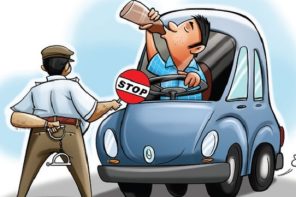If you are new to car ownership, the world of car insurance can seem a confusing and contradictory place and difficult to navigate. This list will answer frequently-made queries about car insurance.
Why do I need car insurance?
For the safety of all road users, drivers of road vehicles in Britain are subject to laws on Continuous Insurance Enforcement – everyone must have insurance to drive, continuously, at the very least third-party insurance.
No insurance means you have no legal protection against damages caused to yourself or others while driving. Driving without insurance will lead to your vehicle being confiscated, so it is vital to have insurance.
What are the types of car insurance?
The lowest level of insurance you can legally have is third party insurance – cover for if someone else damages your vehicle and you are not at fault. However, above this there is also third party, fire and theft, which also protects against fire damage to your vehicle and the theft of your vehicle, as well as protecting you from damages which are judged to be your responsibility.
The third kind is comprehensive cover, which is more expensive but insures your car and items inside it against all damages. This would also allow you to drive another person’s car, but only if they give express permission. If you are leasing your car to buy it over time, this is recommended as the best policy type, as you do not fully own the vehicle until the end of the lease period.
What is a multi-car policy?
If a household has multiple vehicles, it is possible for them to be insured upon the same policy – ideal for families with two working adults. If a claim is made by one driver, it will only affect their no claims discount, not the other driver of the household.
How expensive will my car insurance be?
Your insurance price can vary depending on a lot of factors – including age, vehicle and how many years you have been driving, and even your number of claims. The Association of British Insurers puts the average premium cost at £485 per annum. With awareness of the market and careful driving on your part, your premium can soon come to be lower than the market average.
How can I keep my premiums low?
Insurance providers need to send you notice to renew 30 days before you are required to renew – and, if you extend your policy three weeks before the deadline, it is possible to save £280 to £300 on premium increases which are inched higher as that cut-off point approaches.
Avoid failing to renew until too late, as the company may take this as evidence of disorganisation and give you a strong price hike to contend with something which was entirely avoidable. If you want to change suppliers, always compare a range of quotes to get an idea of what good prices are.
We hope these answers to the most common questions around car insurance have ensured you now have a better understanding of exactly what a good policy should entail and the questions you should be asking your insurance company.





